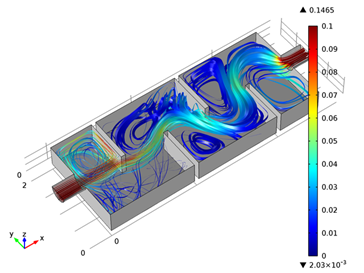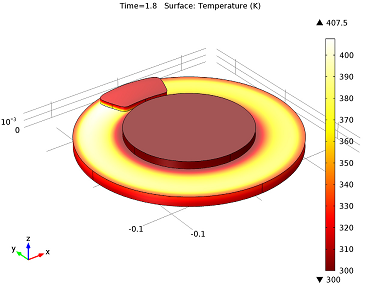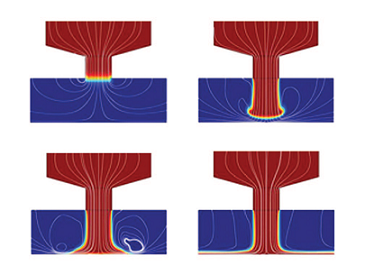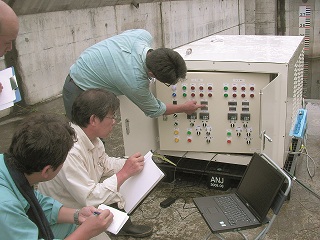Fluid & Heat Blog Posts

Optimal Distribution: Tree Roots and Microreactors
I love trees and my favorite is definitely the ficus, all varieties included. A few weeks ago I had the chance to admire a stately ficus microcarpa (see figure below). What struck me above all were its aerial roots. Roots are designed to absorb water and nutrients, sustaining the tree and synthesizing substances responsible for its growth. A thought crossed my mind right away: the shape of those roots and the way they coalesce have surely been optimized by Mother […]

Water Purification Using Ozone
Water purification is the process by which chemicals, contaminants, and sediments are removed from dirty water to make it clean, and there are many processes through which this can be done. What you might not know, is that ozone molecules can be used as a means of disinfection in the purification process. “Ozonation” has been used to purify water, kill germs and bacteria in food, and even get rid of bad smells. Not only does ozonation provide clean water without […]

Simulating Heating of Brake Discs in a Car
Cars need brakes for obvious reasons, and you don’t want these to fail. Brake failure can be caused by many things, one of which is the overheating of the brake’s disc. As I’ve said before, no engineer wants to design a product that fails, which is also true in the case of brake-disc design. Let’s study a scenario of a car in panic brake mode, and find out how hot the brake discs and pads get as well as how […]

Metamaterials Make Physics Seem Like Magic
Metamaterials are a new and emerging technology with vast potential to reshape our views on what is and isn’t possible in this physical world of ours. Unlocking the mysteries and overcoming the obstacles associated with metamaterials would lead to a host of technological advances once thought impossible by even the most imaginative of individuals. From making computer chips smaller and faster than the most advanced current ones, to protecting structures from earthquakes, to developing imaging technology that doesn’t harm tissue […]
Long-time Multiphysics User on COMSOL for Heat Transfer
Having used COMSOL Multiphysics for over six years now, we are pleased to have Dr. Jon Ebert, Director at SC Solutions, join us in the next Mechanical Engineering Magazine Webinar Series titled “Heat Transfer in Solid and Fluids”. On March 7th, he will co-host an instructional webinar together with COMSOL’s John Dunec. Dr. Ebert will discuss SC Solution’s simulation activities within a wide span of heat transfer-related applications, particularly with respect to semiconductor manufacturing. As a long-time user of COMSOL […]

Upgrading the Nuts and Bolts of the Electrical Grid
The electrical grid describes the network created for producing electricity, transmitting it and delivering it to the consumers. A “smart grid” is an electrical grid that gathers information on the suppliers and consumers automatically to improve efficiency and sustainability in the system. As the automated technology improves, the hardware that physically connects the electrical grid together must improve as well. This hardware, the “nuts and bolts” of the grid, is comprised of transformers, cable joints, terminations, bushings, and fault current […]

Fluid Flow: Smooth Optical Surface in Minutes
Ultra-precise optical components require blemish-free surfaces that often cannot be achieved by the machining processes that grind these components. Fluid jet polishing (FJP) is a new technology being developed by Zeeko Ltd to replace the hand polishing that was often required. With the help of COMSOL, Zeeko was able to create a product that polishes the optical components in only ten minutes instead of an entire day, and without waveforms.

Injectable Microbubbles in Hydrology and Healthcare
Microbubbles filled with oxygen can be injected into contaminated lakes to restore the water quality. Typically, water is purified via water-treatment plants, but this microbubble technique is both inexpensive and more environmentally-friendly in comparison. As seen in a COMSOL News 2011 article, oxygen microbubbles are a researcher’s way of copying nature’s own self-restoration mechanism for cleaning contaminated lakes.
